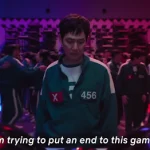Imagine a gaming world where every character you encounter is as unpredictable and human-like as your fellow players. A world where the possibilities are endless, and the content is always fresh. Welcome to the era of Generative AI in video games, a technological advancement that promises to reshape the gaming landscape in remarkable ways.
The Evolution of AI in Gaming
Artificial Intelligence (AI) has been a silent partner in the gaming industry since its inception. From the early days of simple algorithms in the 1950s to more complex decision-making processes in games like “The Sims,” AI has played a vital role in creating adaptive characters and storylines.
The Rise of Generative AI
Enter Generative AI, the latest evolution of artificial intelligence. Unlike its predecessors, generative AI can create text, images, and audio in response to prompts. It’s a game-changer, and it’s here to revolutionize the gaming experience.
Revamping Non-Playable Characters (NPCs)
Non-playable characters (NPCs) have long been a staple in video games, but they often suffer from stilted behavior and unnatural dialogue. Alexis Rolland, the development director of La Forge China, noticed this issue and introduced Ghostwriter, a text-generating AI tool. Ghostwriter helps writers create a wider variety of original dialogue for NPCs, making their interactions more engaging and natural.
Ghostwriter: Crafting Natural NPC Dialogue

Ghostwriter takes speech as input and generates body gestures as output, making NPCs express themselves with non-scripted dialogues and nearly natural body animations. This innovation paves the way for fully fledged, AI-powered NPCs with more natural and unpredictable behavior.
Smarter and Less Predictable NPCs
Jitao Zhou, a student at Rikkyo University in Tokyo, is utilizing deep learning to develop NPCs without fixed patterns. These NPCs exhibit a greater variety of movements, making games more entertaining and challenging. The future of gaming involves NPCs that can think on their feet.
Realistic Conversations with ChatGPT
Chinese gaming company NetEase has already harnessed the power of generative AI with ChatGPT to create realistic NPC dialogue in their mobile game “Justice.” This technology breathes life into characters, making conversations more immersive and engaging.
The Challenge of Narrative Control
While AI-generated NPCs hold tremendous potential, there are challenges. Game designers may lose control over the narrative, leading to unexpected outcomes or immersion-breaking moments. Balancing AI’s creativity with the intended game experience remains a delicate task.
The Promise of Endless Open Worlds
Open-world games like “Grand Theft Auto” and “Elden Ring” offer non-linear gameplay with countless possibilities. Generative AI can take this concept to new heights. Imagine a game world that adapts to your every move, crafting unique storylines and quests tailored just for you.
User-Generated Content (UGC) Enhancement
Generative AI isn’t just about NPCs; it empowers players too. Games like “Fortnite,” “Minecraft,” and “The Sims” rely on user-generated content (UGC). With generative AI, creating high-quality UGC becomes more accessible. The potential for personalized and reactive player experiences grows exponentially.
Empowering Game Developers
Generative AI isn’t just transforming gameplay; it’s also impacting game development. Maxis, the developer behind “The Sims,” is developing generative AI tools to support game designers. These tools automate repetitive tasks, allowing developers to focus on the creative and interesting aspects of game design.
The Road Ahead for Generative AI in Gaming
As generative AI continues to evolve, it’s clear that video games are in for an exciting journey. This technology won’t replace human game developers but will serve as an additional tool, similar to how motion capture enhanced the work of animators. While the future holds immense promise, it also raises legal and ethical questions, especially concerning artists’ copyrights.
In conclusion, generative AI is poised to revolutionize the gaming industry. It’s not just about creating more realistic NPCs or dynamic open worlds; it’s about empowering players and developers alike. As we venture into this AI-driven era, one thing is certain: video games are about to get a whole lot better.






